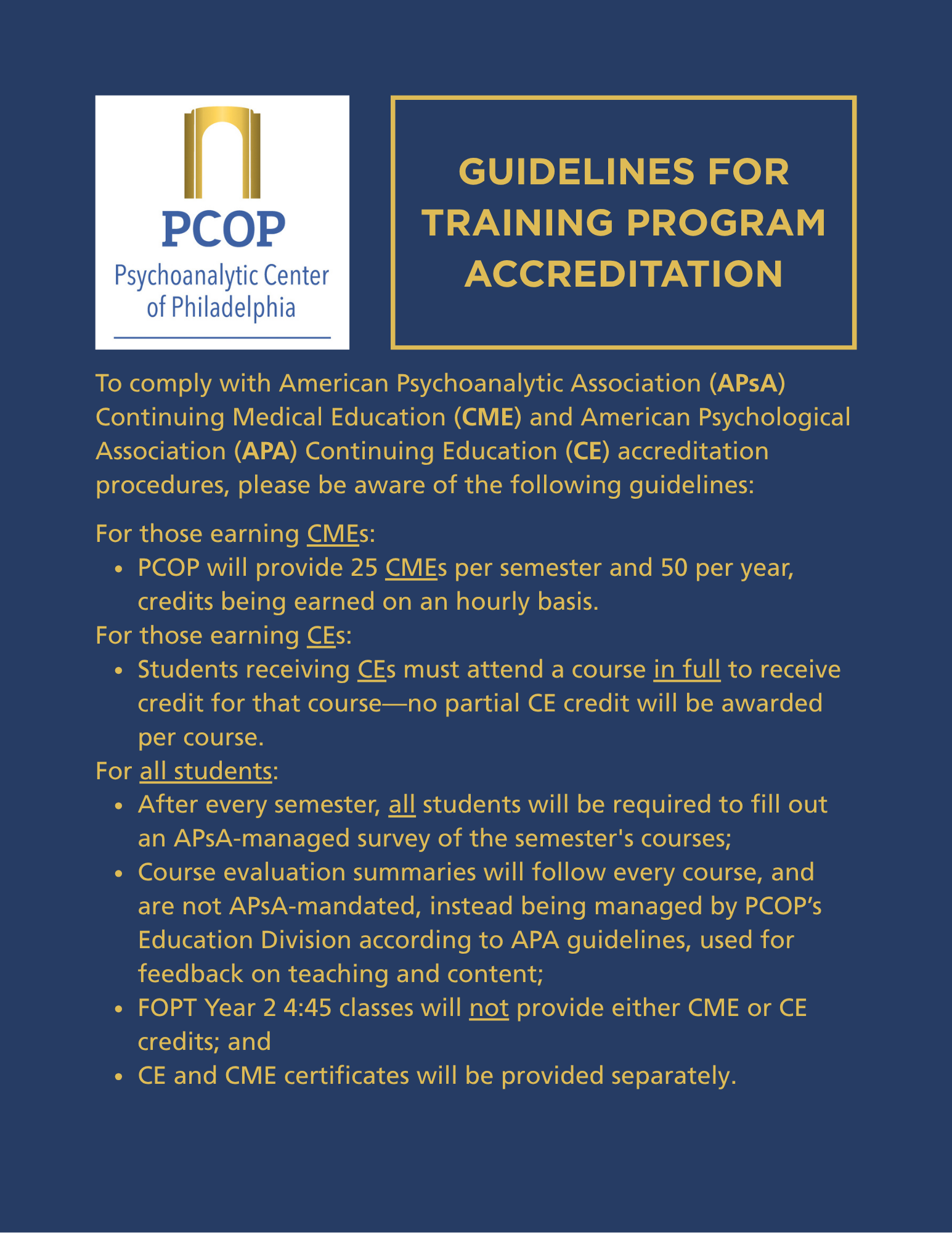- Home
- Training & Applications
- Calendar of Events
- Find a Therapist
- Membership
- Payments & Donations
The Psychodynamic Psychotherapy Program is based on the premise that a psychodynamic stance characterized by analytic listening, dynamic understanding, and emotional presence is essential for the creation of a successful therapeutic relationship. Such a relationship enables the emergence of patients’ deeper understandings of themselves and an increased capacity for agency, intimacy, and joy.
The Psychodynamic Psychotherapy Training Program is comprised of the 2-year Foundations of Psychoanalytic Thought (FOPT) curriculum and a third year designed specifically for those pursuing training in psychodynamic psychotherapy. The FOPT curriculum provides a framework for developing students’ ability to apply psychoanalytic principles and to use techniques derived from those principles to enhance the therapeutic process. This will include courses on theory, development, assessing and conceptualizing patient’s character and needs, understanding the inner world of the patient, and deepening and using the therapeutic relationship. Advanced topics include separate courses on neurotic, narcissistic, and borderline character organization as well as courses on trauma and clinical case presentations. The third year continues the development of a student’s knowledge and skills and includes courses on specific populations and issues (psychosis, eating disorders, substance use issues, gender and sexuality), and the application of psychoanalytic concepts to therapeutic work. Courses on technique include working with resistance, transference, countertransference, enactments and deepening the therapeutic process. Course work is integrated with on-going supervision and personal therapy in years two and three. Students are also encouraged to attend on-going seminars at the Center as well as guest lectures.
Psychotherapy students also receive benefits as part of their involvement in the training program. Student benefits include:
- Inclusion in Find A Therapist online search portal
- Opportunity for referrals from Consultation and Referral Service
- Personal PEP Web access
- CE/CME credits from PCOP-sponsored activities at no additional cost
- Basic Benefits

